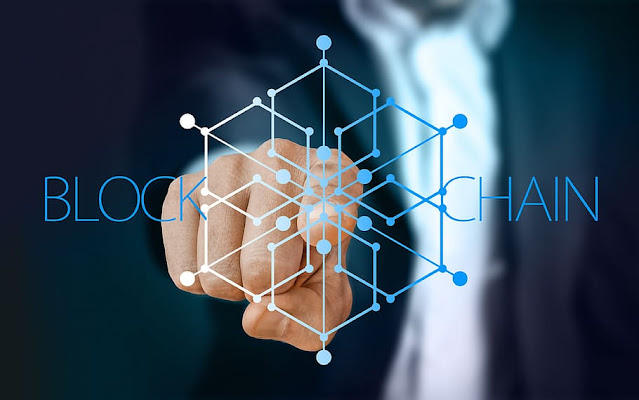Blockchain technology, a revolutionary innovation of the digital age, has emerged as one of the most transformative forces. Originally introduced as the underlying technology for cryptocurrencies, such as Bitcoin, blockchain has now transcended its initial purpose and is shaping various industries. As we enter 2023, dynamic advancements in blockchain programming are reshaping how we interact with data, security, and transactions.
Table of Contents
- DeFi Protocols and Smart Contracts Evolution
- NFTs and Enhanced Digital Ownership
- Integration Seamlessly through Interoperability
- Sustainable and Energy-Efficient Blockchain Solutions
- Management of Identity Decentralized
- Development and Communication Across Chains
- Enhanced Security Measures
- AI Integration for Smarter Contracts
- Quantum Computing Preparedness
- Regulation and Legal Considerations
- Blockchain as a Service (BaaS)
- Gaming and Metaverse Integration
- Supply Chain Traceability
DeFi Protocols and Smart Contracts Evolution
Blockchain programming innovation has been fueled by the Decentralized Finance (DeFi) industry. DeFi protocols and smart contracts should advance further in 2023, enabling more complex financial applications with improved automation and security.
NFTs and Enhanced Digital Ownership
Non-Fungible Tokens (NFTs) have taken the digital art and collectibles market by storm. This trend will continue in 2023, with NFTs evolving to represent not only ownership of digital art but also broader concepts like intellectual property and real-world assets.
Integration Seamlessly through Interoperability
Blockchain networks are numerous, each with its own set of advantages. By achieving interoperability between these networks in 2023, data and assets will be able to move freely between various blockchains.
Sustainable and Energy-Efficient Blockchain Solutions
In 2023, the rise of sustainable blockchain solutions will address environmental concerns. By incorporating innovative consensus mechanisms and energy-efficient protocols, the environmental impact of blockchain networks will be minimized.
Management of Identity Decentralized
In 2023, the idea of self-sovereign identification will become more widespread and enable people to have more control over their personal data. Decentralized identity management will be made possible by blockchain's built-in security and transparency.
Development and Communication Across Chains
The demand for effective cross-chain communication will increase as blockchain ecosystems develop. This tendency will result in the creation of tools that facilitate easy data transfer and communication between various blockchains.
Enhanced Security Measures
Blockchain's security prowess will be fortified further in 2023. Blockchain networks will experience heightened security through the adoption of advanced cryptographic methods and consensus algorithms. This advancement will bolster user confidence and reinforce the integrity of information stored within these networks.
AI Integration for Smarter Contracts
The integration of Artificial Intelligence (AI) with blockchain technology will revolutionize contract creation, giving birth to contracts that possess enhanced intelligence. These intelligent contracts will possess the remarkable capacity to adapt and evolve in response to changing circumstances, ultimately enhancing their functionality and versatility.
Quantum Computing Preparedness
Quantum computing, however still in its infancy, could represent a challenge to conventional cryptography. Blockchain developers in 2023 will begin to explore quantum-resistant encryption methods to ensure the technology's long-term security.
Regulation and Legal Considerations
Blockchain's increasing mainstream adoption paves the way for evolving regulatory frameworks. By 2023, a more conducive environment for innovation can be anticipated as clearer guidelines for blockchain-based applications emerge.
Blockchain as a Service (BaaS)
In 2023, Blockchain as a Service (BaaS) offerings will experience growing popularity. This approach allows businesses to harness the advantages of blockchain technology without the burden of managing intricate infrastructure requirements.
Gaming and Metaverse Integration
The integration of blockchain technology with the gaming industry and metaverse ecosystems is poised for further expansion. This revolutionary technology has the capability to enhance ownership, foster interoperability, and ensure secure transactions, transforming how gamers engage with virtual worlds.
Supply Chain Traceability
Blockchain's transparency and immutability make it an ideal technology for managing supply chains. The year 2023 will witness a significant rise in the adoption of blockchain-based solutions, ensuring traceability, authenticity, and accountability within supply chains.
The year 2023 holds immense promise for blockchain programming. With notable advancements in DeFi, NFTs, cross-chain communication, sustainable solutions, and more, the potential for blockchain to reshape various industries is truly vast. As developers continue to innovate and collaborate, the future of blockchain programming becomes incredibly exciting.
FAQs
What is the role of blockchain in Decentralized Finance (DeFi)?
Blockchain enables the creation of secure and automated financial applications, forming the foundation of DeFi protocols.
How do NFTs contribute to digital ownership?
NFTs use blockchain to verify ownership and provenance, ensuring authenticity and scarcity in the digital realm.
Why is cross-chain development important?
Cross-chain development enables seamless communication and data transfer between different blockchain networks, expanding their utility.
What are the advantages of AI-integrated smart contracts?
AI-integrated smart contracts can adapt and respond to changing conditions, enhancing their functionality and efficiency.
How does blockchain enhance supply chain traceability?
Blockchain's transparency and immutability allow for real-time tracking and verification of goods in the supply chain.










0 Comments